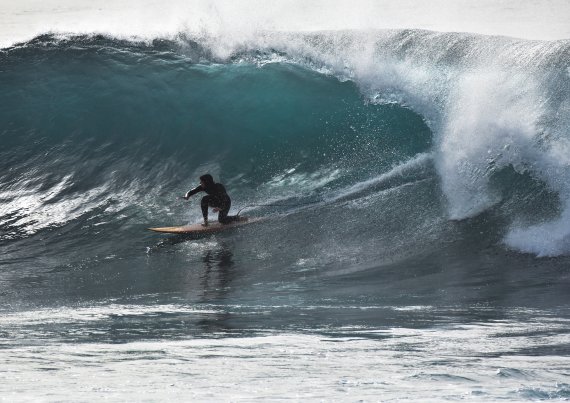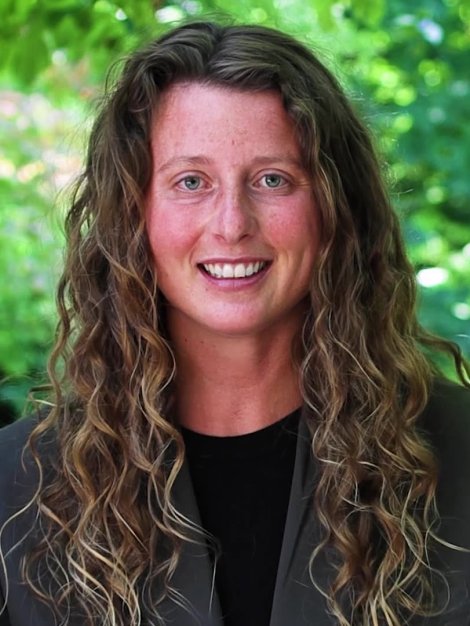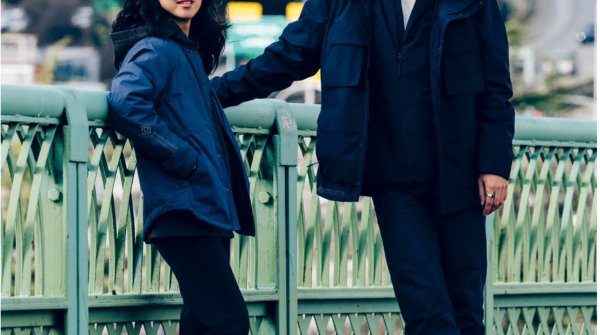Lena Kemna: Of course, preparing for something like surfing big waves involves physical, mental, and emotional training. Physically, I focus a lot on strength work and apnea training. But what mattered most to me this season was reminding myself that I’m really just building on the foundation of the past ten years. And something people often underestimate: rest and recovery are just as important as training. For every day I surf, I take at least one, sometimes even two, full days of rest.
There was never a single moment when I truly wanted to give up or felt on the verge of quitting. But there were many challenging days. I always say there wasn’t a day when I threw up from exhaustion or cried because it was too hard. Yet every single session came close to that. What helped me push through was reminding myself that this is what I want to do. Of course, there’s chaos and confusion at times, but in the end, I love surfing and especially surfing big waves, with all my heart. In those moments, I remind myself that I’m here because I want to be here.
When I think about moments when I reached my limits, two challenges stand out. The first was financial. Surfing at this level requires a lot of resources, and I wasn’t just the surfer, I was also the main organizer of everything, which was incredibly demanding. The second was the chaos in the lineup at Nazaré. There are jet skis everywhere, people shouting and swearing, it’s loud, hectic, and completely different from my own nature. I’m calm and organized by temperament, so protecting my surfing and my mindset in that environment was a real challenge.
As for advice to young athletes about fear and becoming braver, my perspective might be a bit different from what most people expect: I don’t believe you always have to overcome fear. If you enjoy surfing small waves in the sunshine, that’s perfectly fine. Not everyone needs to push themselves into surfing bigger waves. For me, I’ve always loved riding big waves in stormy conditions, but that’s my personal passion. If someone does want to challenge themselves, there are plenty of ways to train both physically and mentally. Still, I believe the most important step is to begin with what you genuinely enjoy. And instead of “stepping out” of your comfort zone, I think it’s far more powerful to grow it gradually.
Do you want to discover more inspiring stories?
Then don’t miss your chance to meet internationally renowned creators live at the ISPO Creator Summit, where you can ask them anything in our curated live talks.
For me personally, what is most important in sports, which I also take to the business world, is that I always remember my purpose. Because if you know exactly why you're doing something, it's very easy to just follow it and to withstand all the hardships and all the difficulties that you face, especially as a woman in the surf world, in the big wave world, and also in the business world.
It's very easy to be discouraged and to be intimidated, so for me, the most important thing is to follow my purpose. In my surfing, the way I translate my purpose is that I'm very protective of it. For example, I try to shield myself from very negative experiences, which can be traumatic experiences in the ocean, but it can also be people who are negative influences. That way, I protect my surfing.
Another way I deal with pressure and setbacks is by giving myself enough rest. I need time off in order to have time on, I need recovery to be able to perform. And especially in big wave surfing, the most important is trust. It's a team effort, and this is something that I also take to the business world: to really have your people that you can trust and rely on blindly. For me, this is one of the most important things to succeed.
I'm very lucky that amazing brands reach out to me, especially from the outdoor scene. But I think more interestingly is which brands I do not collaborate with. For me, the highest-paid collaborations were actually the ones that I refused because they simply don't align with my values.
It can be brand values, it can be the product, which I simply don't use. Or for me personally, it's also very important to connect with the team behind the brand. How do the people treat me? Do they respect me? Do they trust me? In that relationship, I always try to give the same back. So I'm usually in very close contact with the team behind the brand, and I also treat them with the same respect I expect.
I always say I'm not a personal brand, I'm not an influencer, I'm not a content creator. I'm an athlete, and I'm a person, and all the other things come after that.
Of course, the brands I work with are extremely important, because in the end, they're the ones financing this. Especially my film LENA, it was fully brand-sponsored. That’s why I value partnerships so highly, they make it possible for me to keep competing as an athlete, to focus on surfing first, and to realise projects like my film.
For me, authenticity is the only way. Especially as a consumer and someone on Instagram, I’m tired of seeing nothing but highlight reels. I don’t want to see only pro athletes succeeding and presenting a perfect world, that’s never the story I wanted to tell. With LENA, I wanted to share something different: the story of being a beginner in big wave surfing. Since making the film, a lot has changed, I’ve competed in my first big wave competition and my life looks quite different now, but I still think it’s very special to tell the story of what it means to start out as a beginner.
When it comes to collaborating with companies, I believe the most successful partnerships are built on freedom and trust. The best relationships are those where I can decide what content to create, where there’s a genuine level of trust, and where the work extends into a long-term collaboration.
What is really important to me is that I get to tell my story. It's not about just creating the perfect content. It's really about telling my story authentically and working with partners who respect that and support that.
I think being authentic is the only way. Because if you're not authentic, people will see it immediately. They will feel it, they will notice it. And especially in the surf community and the outdoor community, credibility is everything. If you're not authentic, people will not believe you, and they will not support you.
You move between elite sports, content creation, and academic research, for example, in your branding PhD. Which experiences from these different worlds help you today to provide companies and brands with valuable insights as a speaker and consultant?
I come from two very different worlds: extreme sports and the business world, particularly consulting, where, as a woman, you’re often in the minority. It’s been incredibly exciting to bring these two worlds together. In most cases, I’m the only person bridging them. I don’t know another big wave surfer with a business background, and I don’t know many business professionals who are also big wave surfers.
I see a lot of parallels between the two, like managing stress and handling intimidating situations. Personally, I benefit greatly from being immersed in both worlds, and it’s been really rewarding to share that experience with others. When people ask me what lessons I take from one world to the other, I always say: no board of directors will ever be as intimidating as being chased by a 20-foot wave, and nothing is scarier than navigating the locals at a surf spot.
For me, combining these worlds has been incredibly enriching. Both my surfing and my skills as a business professional have grown from it, and I’ve truly enjoyed sharing that perspective with the world.

I’m really excited to be part of ISPO. My “plan A” has always been surfing, being a big wave surfer. But I also have a “plan B.” I come from a background in marketing, consulting, and academia, and in many ways that plan B is much stronger than my plan A. Lately, I’ve felt these two worlds merging more and more, and I’m thrilled to share that with a wider audience.
I like to think that everyone should take away the message that speaks to them personally. For some, it might be to surf more or simply spend more time outdoors. For others, it might be the realisation that it’s possible to achieve extreme things as an ordinary person. I’m living proof: I’m a woman, I’m small, I don’t have huge muscles, and yet, through consistency, persistence, and following my purpose, I’ve been able to reach things I wouldn´t have dreamed of ten years ago.
Lena Kemna’s journey shows how closely sport, storytelling, and strategy are connected and why purpose and authenticity remain non-negotiable. Her perspective will be part of the dialogue at the ISPO Creator Summit at ISPO 2025 (NOV. 30 – DEC. 02, 2025), where athletes, creators, brands, and retailers come together to share insights, strengthen connections, and shape the future of sport.
You are a creator and want to share your story?
Discover how the ISPO Creator Summit can help you present your story to a global audience and inspire others.

 Sports BusinessSki Mountaineering Goes Olympic: What Milano-Cortina 2026 Means
Sports BusinessSki Mountaineering Goes Olympic: What Milano-Cortina 2026 Means
- ISPO awards
- Mountain sports
- Bike
- Design
- Retail
- Fitness
- Health
- ISPO Job Market
- ISPO Munich
- ISPO Shanghai
- Running
- Brands
- Sustainability
- Olympia
- OutDoor
- Promotion
- Sports Business
- ISPO Textrends
- Triathlon
- Water sports
- Winter sports
- eSports
- SportsTech
- OutDoor by ISPO
- Heroes
- Transformation
- Sport Fashion
- Urban Culture
- Challenges of a CEO
- Trade fairs
- Sports
- Find the Balance
- Product reviews
- Newsletter Exclusive Area
- Magazine


